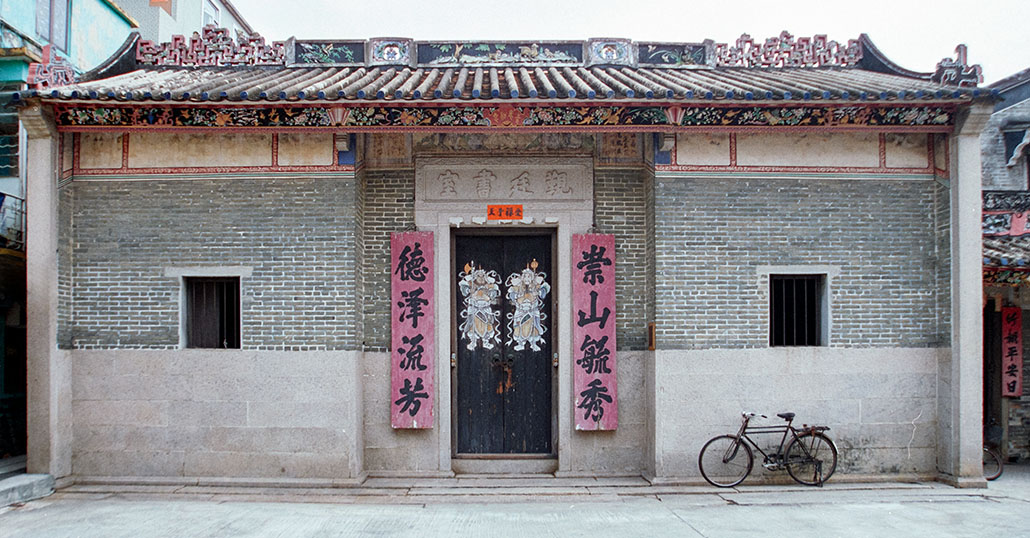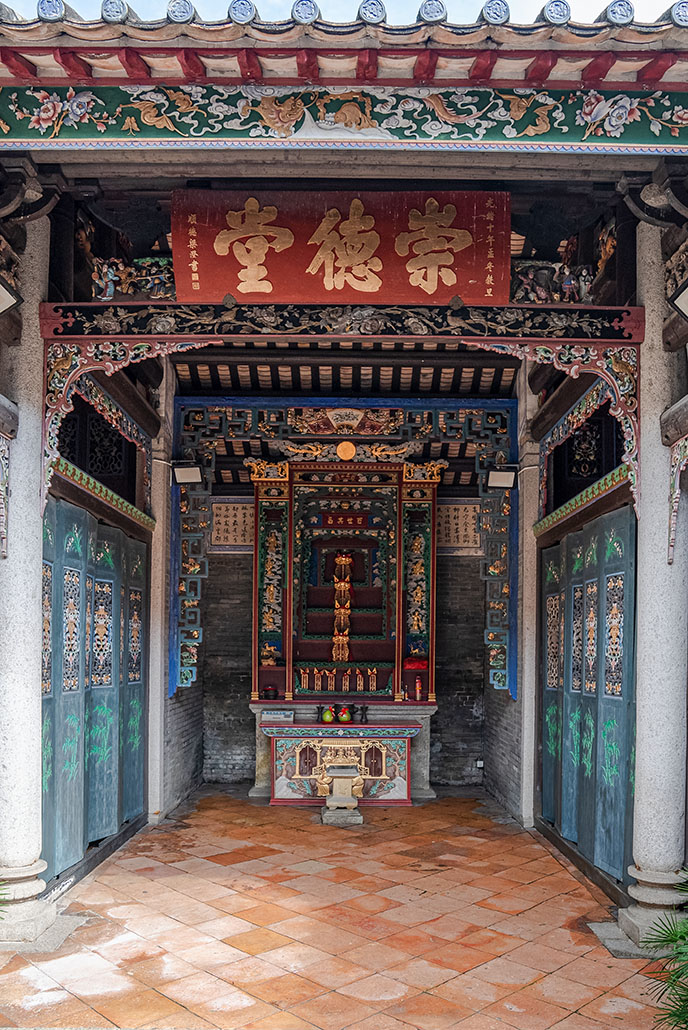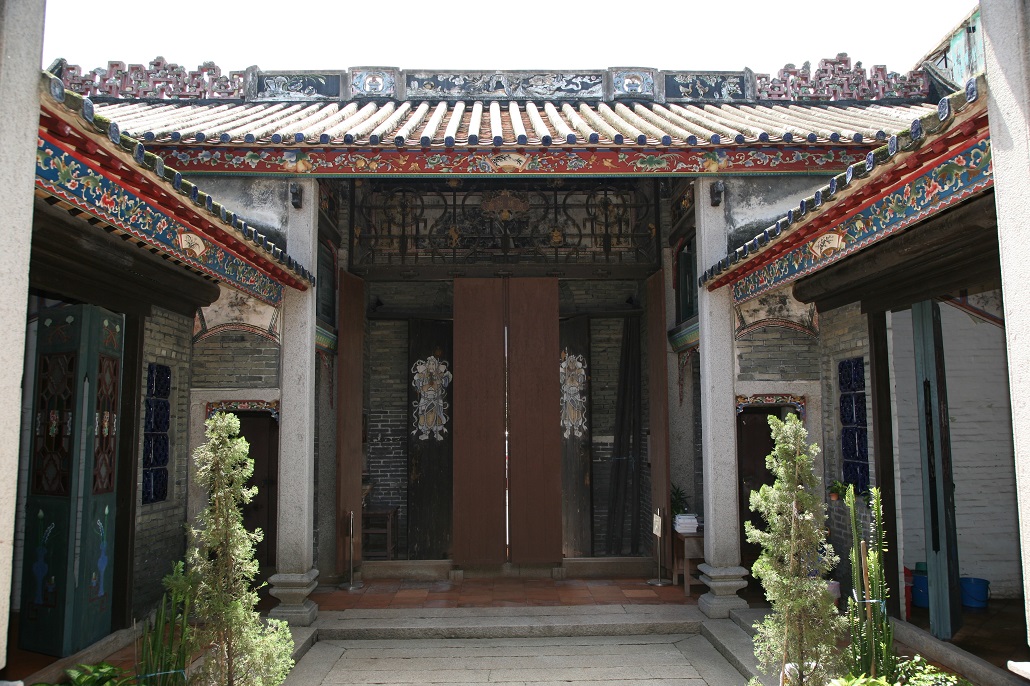Located in Hang Mei Tsuen, Ping Shan, Kun Ting Study Hall is also known as Shung Tak Tong. It was built in the ninth year of Tongzhi reign of Qing dynasty (1870) by Tang Heung-chuen, the twenty-second generation ancestor of the clan, in memory of his father Tang Kun-ting. The Tang clan of Ping Shan attaches great importance to culture and education. In the early years, the young clansmen attended classes in the clan or family ancestral halls. Subsequently, the Tang clan grew and became better off and built private study halls. These included Kun Ting Study Hall, Yan Tun Kong Study Hall, Sing Hin Kung Study Hall, Shut Hing Study Hall, Yeuk Hui Study Hall and Ng Kwai Tong. Young clansmen received traditional private education in the study halls to prepare them for the Imperial Civil Service Examinations and officialdom.
Constructed with grey bricks, Kun Ting Study Hall has a two-hall-three-bay layout with a courtyard. In the main bay of the rear hall is an altar. The delicate wood carvings, stone carvings, mural paintings and plaster mouldings display exquisite craftsmanship and epitomise the regional characteristics of Lingnan traditional architecture.
The study hall has both ancestral worship and education functions. The cockloft of the front hall was used as a library, and the adjoining Ching Shu Hin was used as accommodation for the teachers. A passage connects the cocklofts of the two buildings. The chambers on both sides of the courtyard were used as classrooms. As the clan elders recall, they could accommodate as many as 50 to 60 students. The altar in the main bay of the rear hall houses the soul tablet of Tang Shui-tai, the father of Tang Kun-ting. Tang Shui-tai obtained the degree of wujuren in the ninth year of Jiaqing reign of Qing dynasty (1804). This shows that the young clansmen of Ping Shan engaged in both scholarly and military pursuits and were trained according to their talents to achieve outstanding results in both civil and military Imperial Civil Service Examinations.
The plaques in Kun Ting Study Hall also reflect the close relationship between Ping Shan and scholars in Guangdong. In the rear hall is a plaque with the inscription “Shung Tak Tong”, written by Liang Cheng of Shunde, in the tenth year of Guangxu reign of Qing dynasty (1884). Despite the abolition of the Imperial Civil Service Examinations in the early twentieth century, Kun Ting Study Hall remained as an institute for youngsters of nearby villages. With the opening of Tat Tak Public School in 1931, the study hall had completed its educational mission, but it continues to enlighten members of the clan.
Opening Hours:
Monday to Sunday: 9am - 1pm and 2pm - 5pm
Closed on the first three days of Chinese New Year
Address:
Hang Mei Tsuen, Ping Shan, Yuen Long, New Territories.
Enquiry Hotline:
(852) 2208 4488




